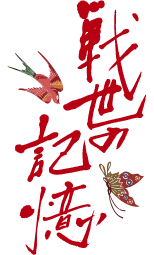
Sending Messages as a Prefectural Office Worker under a Rain of Shells
Sending Messages as a Prefectural Office Worker under a Rain of Shells
Name: Seiko Asato (25安里成光)
Date of birth: June 1, 1927
Place of birth: Naha City
Age at the time: 18 years old, prefectural office worker
Prefectural office worker assigned to the post of Assistant Messenger
The air-raid shelter at Hantagawa was considered absolutely safe.
This is because all the shelling from the direction of the south and central areas, as well as Yonabaru, and flew over the shelter at Hantagawa, and the air raids did not reach that far either. The foxhole was considered safe. Everyone was completely at peace when we were in that shelter.
We were most astonished around March 31 (1945). The US troops set up an artillery battery on Kamiyama Island (Chibishi Atoll) for direct firing. We were completely exposed at Hantagawa. After they installed that long-range artillery battery, we were frequently bombarded. The construction of the air-raid shelter at Hantagawa had not been completed at the time, and we were still digging the shelter while we were in it.
My primary role was an assistant messenger working on behalf of regular staff members of the Construction Department, who were inside the shelter at Hantagawa. This post was assigned to me because the other three prefectural organizations of the Interior Department, the Education Section and the Civil Engineering Section, were distributed within the foxhole at Shuri Girls' High School. Therefore, I was assigned to the post of Assistant Messenger.
I made many trips between the shelter at Hantagawa and the shelter at Shuri Girls' High School. It was a short distance, but it took me about half a day. Understandably, I was exposed to fire from naval gunfire from the sea, air raids, as well as land based artillery bombardments, and I had to make my way over while dodging these things, so I was risnking my life dispatching messages.
Then when we retreated to Nagado, I was dispatched to exchange messages with the people in the shelter of the Interior Department, and I had only two routes to reach there, that is, either leave Kokuba and walk over Madanbashi Bridge or walk over Ichinichibashi Bridge.
Well, I mentioned walking over bridges, but these bridges had gone and only the pylons remained. Some corpses were caught on them, and they were bloated like cows. These included women and children, as numerous people were dead there. I pushed my way through the many corpses.
Later on, the prefectural office retreated to Yoza. We were assigned to the rear guide volunteer corps up to that point and we were working to fulfill our mission of securing food supplies, but eventually we could no longer move around. We were then divided up into groups of about three people.
I was in a group with my older brother and Mr. Ishibashi, and the three of us worked together.
To the south
The scenes of battles in the south around that period were truly a living hell.
People headed for Gushikami Village, or Itoman City, with ordinary people walking together as refugees; however, the situation was such that no one had any idea in which direction they should head, where it would be safe to go, so I had no clear idea how many days it took or where we had wondered to.
Persuaded against suicide by older brother's words
We found a roughly excavated air-raid shelter, so taking advantage of this, the three of us snuck in there. As we sat inside, we did not hear much of the extremely violent sounds of aircraft or the sound of artillery shelling. I thought that was odd, so I got out and had a look. We saw American troops, stripped to the waist, walking over.
I thought we had lost the war, so when I got back inside the shelter I said "We must have lost the war." But then my older brother said to me, "It is not possible for Japan to lose. There is absolutely no chance of that!" Then Mr. Ishibashi also told me, "There is no way Japan would lose. Soon the Japanese will land from the other side and catch them in the middle." Still, I said "But it is just a matter of time before the American troops come to this shelter." My older brother then went out for a look and then muttered shortly, "We've lost."
The three of us dropped into silence thinking of what we should do. I happened to have two hand grenades at that time. So I suggested, "If the enemy comes here, let's throw one at them and die together with the other one." Then my older brother quickly said, "Wait a minute, it is one thing to die, killed by the enemy, but we should not kill ourselves." So Mr. Ishibashi, who was an elderly person, also said "Let's not commit suicide."
Quite some time passed and as expected, we heard a voice telling us to come out. Mr. Ishibashi tied a white cloth to the tip of the umbrella he had with him to create a surrender flag and he went out first.
Name: Seiko Asato (25安里成光)
Date of birth: June 1, 1927
Place of birth: Naha City
Age at the time: 18 years old, prefectural office worker
Prefectural office worker assigned to the post of Assistant Messenger
The air-raid shelter at Hantagawa was considered absolutely safe.
This is because all the shelling from the direction of the south and central areas, as well as Yonabaru, and flew over the shelter at Hantagawa, and the air raids did not reach that far either. The foxhole was considered safe. Everyone was completely at peace when we were in that shelter.
We were most astonished around March 31 (1945). The US troops set up an artillery battery on Kamiyama Island (Chibishi Atoll) for direct firing. We were completely exposed at Hantagawa. After they installed that long-range artillery battery, we were frequently bombarded. The construction of the air-raid shelter at Hantagawa had not been completed at the time, and we were still digging the shelter while we were in it.
My primary role was an assistant messenger working on behalf of regular staff members of the Construction Department, who were inside the shelter at Hantagawa. This post was assigned to me because the other three prefectural organizations of the Interior Department, the Education Section and the Civil Engineering Section, were distributed within the foxhole at Shuri Girls' High School. Therefore, I was assigned to the post of Assistant Messenger.
I made many trips between the shelter at Hantagawa and the shelter at Shuri Girls' High School. It was a short distance, but it took me about half a day. Understandably, I was exposed to fire from naval gunfire from the sea, air raids, as well as land based artillery bombardments, and I had to make my way over while dodging these things, so I was risnking my life dispatching messages.
Then when we retreated to Nagado, I was dispatched to exchange messages with the people in the shelter of the Interior Department, and I had only two routes to reach there, that is, either leave Kokuba and walk over Madanbashi Bridge or walk over Ichinichibashi Bridge.
Well, I mentioned walking over bridges, but these bridges had gone and only the pylons remained. Some corpses were caught on them, and they were bloated like cows. These included women and children, as numerous people were dead there. I pushed my way through the many corpses.
Later on, the prefectural office retreated to Yoza. We were assigned to the rear guide volunteer corps up to that point and we were working to fulfill our mission of securing food supplies, but eventually we could no longer move around. We were then divided up into groups of about three people.
I was in a group with my older brother and Mr. Ishibashi, and the three of us worked together.
To the south
The scenes of battles in the south around that period were truly a living hell.
People headed for Gushikami Village, or Itoman City, with ordinary people walking together as refugees; however, the situation was such that no one had any idea in which direction they should head, where it would be safe to go, so I had no clear idea how many days it took or where we had wondered to.
Persuaded against suicide by older brother's words
We found a roughly excavated air-raid shelter, so taking advantage of this, the three of us snuck in there. As we sat inside, we did not hear much of the extremely violent sounds of aircraft or the sound of artillery shelling. I thought that was odd, so I got out and had a look. We saw American troops, stripped to the waist, walking over.
I thought we had lost the war, so when I got back inside the shelter I said "We must have lost the war." But then my older brother said to me, "It is not possible for Japan to lose. There is absolutely no chance of that!" Then Mr. Ishibashi also told me, "There is no way Japan would lose. Soon the Japanese will land from the other side and catch them in the middle." Still, I said "But it is just a matter of time before the American troops come to this shelter." My older brother then went out for a look and then muttered shortly, "We've lost."
The three of us dropped into silence thinking of what we should do. I happened to have two hand grenades at that time. So I suggested, "If the enemy comes here, let's throw one at them and die together with the other one." Then my older brother quickly said, "Wait a minute, it is one thing to die, killed by the enemy, but we should not kill ourselves." So Mr. Ishibashi, who was an elderly person, also said "Let's not commit suicide."
Quite some time passed and as expected, we heard a voice telling us to come out. Mr. Ishibashi tied a white cloth to the tip of the umbrella he had with him to create a surrender flag and he went out first.


